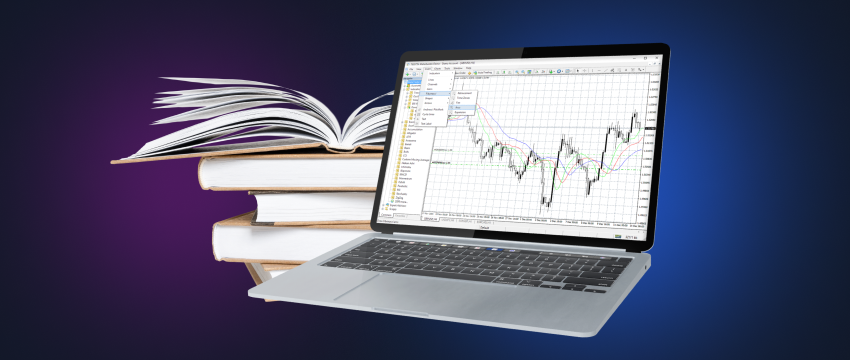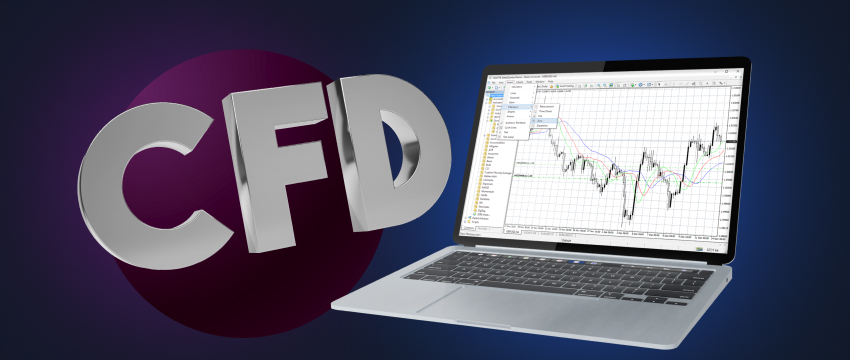The answer to this question largely lies in the way one learns. Everyone has a preferred style of understanding, absorbing, and retaining information. The four predominant styles of learning, regardless of the subject matter, are visual, auditory, kinaesthetic, and reading/writing. The same holds true for learning about forex. Choosing the learning style that suits you best will help you acquire a forex education more quickly and easily. Let’s find out how.
Visual Forex learning
Traders learn through seeing and are said to study better by themselves. Visual learners are typically characterized as follows:
- They think in pictures and use visual chains or mnemonics.
- They may become quiet or impatient when extensive listening is required.
- They like to read and pay attention to details.
- They need to see directions, not just hear them.
- Preferred study tools include maps, charts, diagrams, pictures, and lists.
Visual learners looking to learn forex can access a wealth of forex-related resources online in the form of forex videos or trading webinars. Many of these are available for free, making them a great option for someone with little money to invest in education.
Forex Trading Videos
YouTube serves as an excellent platform where trading enthusiasts can discover thousands of trading-related videos. Visual learners benefit from the images and animations that videos offer, making them inherently more engaging and capturing the viewer’s attention more effectively.
Aside from YouTube, most brokers also offer video content to their traders to boost the overall trading experience. This includes T4Trade, a powerful broker whose top analysts deliver trading tips and market insights in video-on-demand format.
These 60-second commentary-style videos provide traders with the latest financial news, forex basics, and the most popular forex-related terms that all traders should know. Other topics covered are technical and fundamental analysis, trading psychology, risk management, and money management.

Webinar
In the world of forex, webinars are another great way for visual learners to engage in a trading education. They are a great visual tool for individuals to learn and are often used as a means of one-way communication with little to no audience interaction. In this way, the learner can study at their own pace and make notes as they view the webinar. Notably, T4Trade webinars cover topics like trading strategies and plan, market analysis, and movements. They also offer Q&A sessions to answer the most popular questions traders have.

Reading/writing
There undoubtedly exists a world of books, blogs, guides, or e-books—thousands in fact. This offers many benefits to a trader who seeks to learn about forex through reading resources or making notes.
For the avid reader, we covered some of the most popular books on forex trading in a recent blog, ‘Which book is best for trading for beginners?’. It may be worthwhile taking a read through this blog to discover the most sought-after books by global traders looking to boost their skills and gain more forex or trading-related information.
As far as blogs are concerned, T4Trade is a wonderful resource. The broker offers its traders an extensive range of blogs that explore forex fundamentals, providing all traders, regardless of expertise, with critical insights, tips, and ideas. Additionally, T4Trade traders can also access a selection of exclusive e-books via the forex broker’s academy. Some tips to help you quickly analyze and learn from books and blogs:
- Underline the main points in an eye-catching color
- Highlight keywords
- Write your own notes, summarizing key concepts,to retain information
- Read in 25-minute intervals and take a 1–5 minute break
- Review all underlined material read on a particular day to reinforce learning

Auditory learners
Auditory learners are those who learn best through listening and may have difficulty with tasks that are written or visual. For auditory learners looking to educate themselves about forex, podcasts are definitely a great tool.
Today, there are thousands of different podcasts covering a range of forex-related topics. Many of them are managed by skilled traders who impart their ideas, expertise, and insights to beginner traders or those simply looking for some renewed inspiration.
Some of the most popular podcasts for 2023 include:
- The Forex Trading Coach, hosted by Andrew Mitchem
- The Forex Warrior, hosted by Jason Stapleton
- The Trading Nut, hosted by Cam Hawkins
- Macro Voices, hosted by Erik Townsend
- Two Blokes Trading, hosted by Tom Davis and Owen Trimball
- Forex Q&A, hosted by VP
- Desire to Trade, hosted by Etienne Crete
T4Trade’s research and education team also delivers podcasts that offer something for all types of traders. They explore subjects like economic indicators, fiscal policy, key concepts of fundamental analysis, and more. Simply visit T4Trade’s Academy and select the podcast that is of most interest to you.
Kinaesthetic learners
Kinaesthetic learners are those individuals who prefer to participate in the learning experience. They want to actively engage in the lesson, i.e., they want to do things rather than read about them. For this type of forex trader, there are two ways to learn about forex that may benefit them: participating in courses and seminars or signing up for a demo trading account.
Forex trading courses and seminars
Forex trading courses and seminars offer a great way for traders to come together in one space to exchange ideas and expertise. Regardless of whether they are held online or in person, a course or seminar gives traders the opportunity to actively engage with their peers and the trainer in a community-like setting.
Trading courses or seminars are typically held for all types of traders, from beginners to professionals. They usually focus on topics that will allow a trader to expand on their existing knowledge or acquire information they’ve not heard before. Whether this has to do with the basics of forex, market analysis, or implementing complex forex strategies, there is always something for someone to learn.
Signing up for a demo trading account
Demo trading accounts are one of the best ways to learn how to trade. This is because demo accounts provide a simulated trading environment in which a person can practice how to execute trades using virtual funds. By not putting your own money at risk, you are able to learn the fundamentals of forex trading without the fear of losing your capital. A demo trading account offers a way for you to implement different trading strategies to see how they perform. You can use real-time market data to enter and exit positions and gauge outcomes.
You can learn how to use technical and fundamental analysis to make better-informed trading decisions. In a nutshell, a demo trading account allows you to learn through doing. In this way, you can build on your skills and expertise until you eventually gain the confidence to move on to live trading.
Start trading forex with T4Trade
If you haven’t yet signed up for a demo trading account, consider doing so with T4Trade and start learning how to become a successful trader.
T4Trade is used by traders worldwide because of the secure trading environment it offers, combined with flexible leverage, tight spreads, fast withdrawals, and deposits, and quick execution speeds. Traders can also trade more than 300 financial instruments across several asset classes, like forex, metals, commodities, futures, and more.
T4Trade also offers a variety of trading accounts, ensuring that the needs of all types of traders are catered to. In addition, their 24/5 multilingual customer support team provides top-tier service through several channels. Traders can also access a massive range of informative educational resources to learn forex in the learning style that suits them best.
Disklaimer: This material is for general informational and educational purposes only and should not be considered investment advice or an investment recommendation. T4Trade is not responsible for any data provided by third parties referenced or hyperlinked in this communication.




